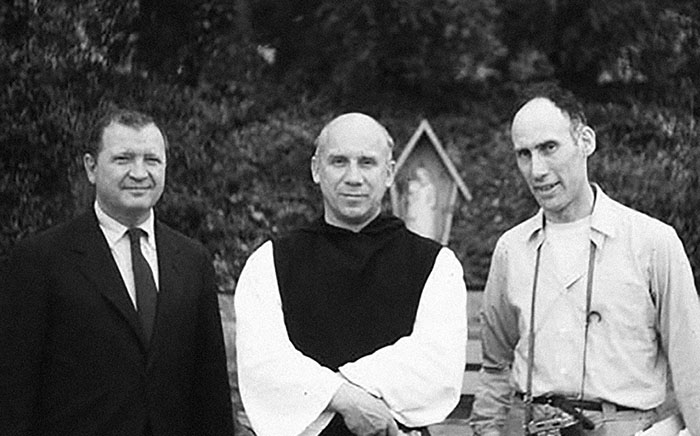This just in from Thomas Carroll:
I saw the note on your blog about losing all those photos. Wanted to make sure this one made it over to the new platform — see below. Take care and merry October.
Thanks, Tom. Talk about synchronicity! I thought about that photo of yours just a minute before finding your e-mail message. Here is what I posted on 8 October 2018:
……………………..
A Northern California reader sends this photo of a street scene in the vicinity of City Lights Bookstore, San Francisco. I made a ‘pilgrimage’ to Lawrence Ferlinghetti‘s famous bookstore in the early ’70s. That was before the Kerouac street sign was up.
Some of Ferlinghetti’s poetry can be read here. To my surprise, Ferlinghetti is still alive at 99. By contrast, old Kerouac quit the mortal coil and “the slaving meat wheel” at age 47. He is, we hope, “safe in heaven, dead.”


